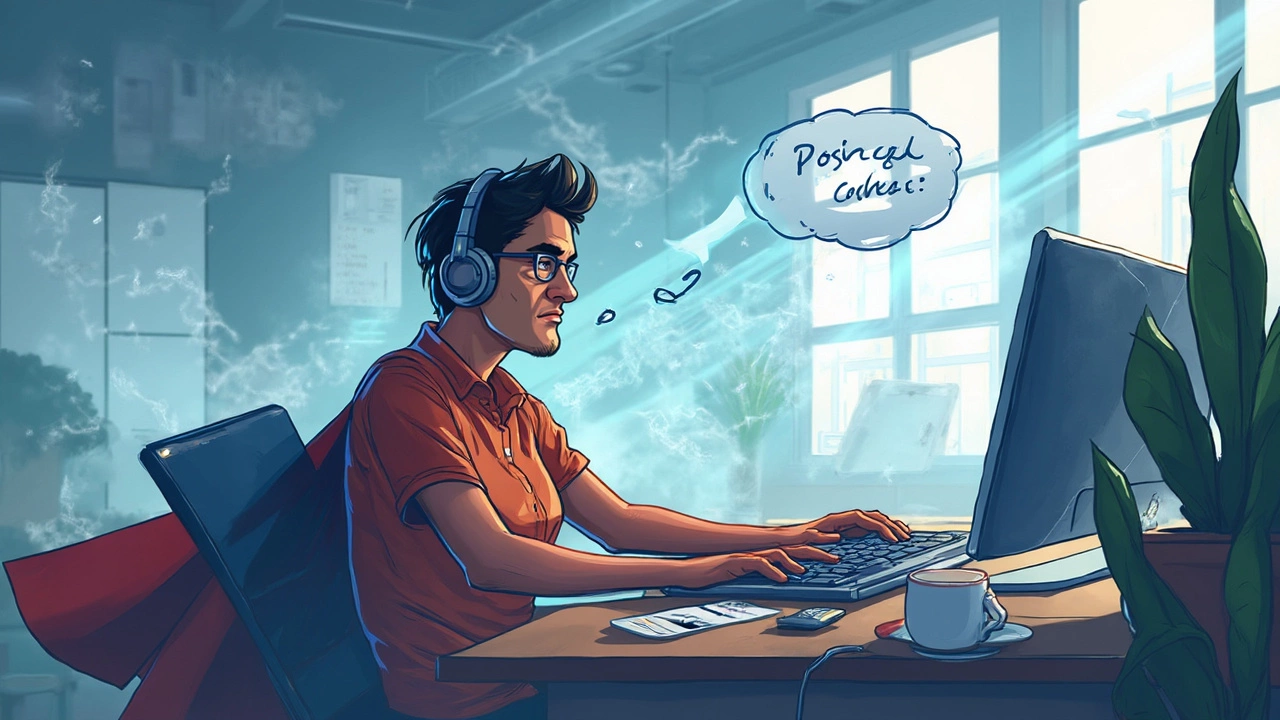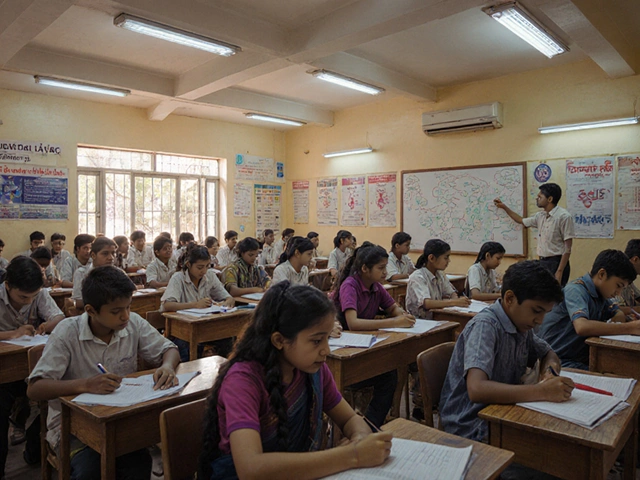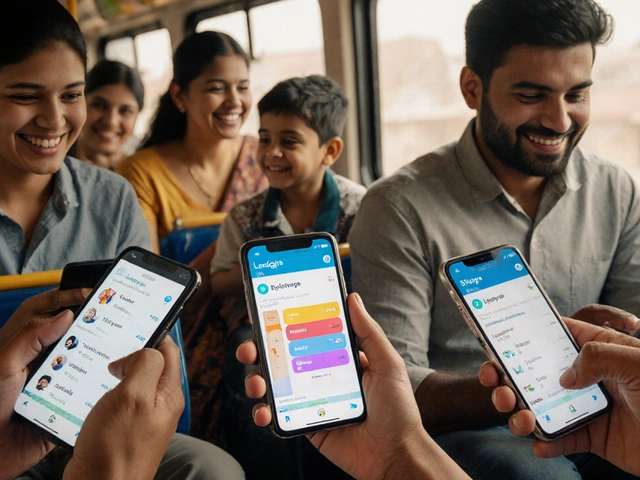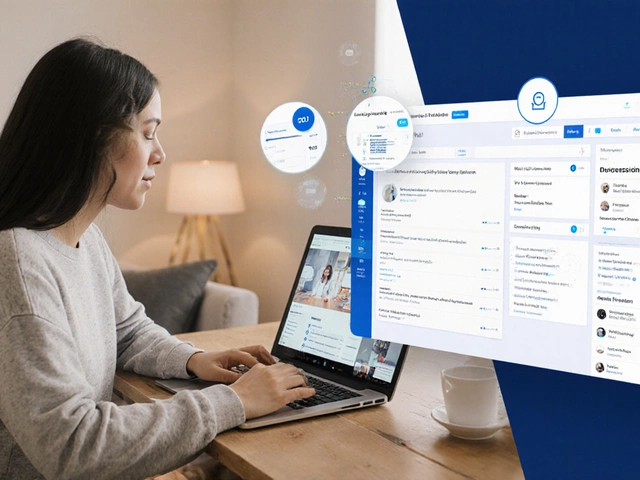Staring at a wall of code can feel like looking at a secret language. Almost every beginner gets that knot in their stomach—what if you press the wrong button and something explodes? But here’s the thing: coding isn’t rocket science (unless you’re literally coding rockets). Most beginners overestimate how tough coding is because of all the techy talk and complicated-looking screens.
The truth is, nobody just sits down one day and writes perfect code. Even people who look super confident forget semicolons, make typos, or get confused by error messages. Messing up is expected—it’s actually just part of how you figure things out. Coding is just breaking down a problem into tiny steps and telling the computer what to do, one step at a time. Most new coders trip up not because they’re “bad at computers,” but because they expect to be great at the start.
If you’re thinking about joining a coding class or teaching yourself, forget the idea that you have to be a math wizard. Most entry-level programming doesn’t use much math beyond basic addition and subtraction. What you really need is patience, a curious mindset, and the willingness to ask Google (or someone else) when you get stuck. That’s how everyone does it—even the pros.
- Why Coding Seems Scary (But Really Isn’t)
- What Makes Coding Hard for Many Beginners
- The Mindset and Skills You Really Need
- Practical Tips for Making Coding Easier
- Resources That Actually Help Beginners
Why Coding Seems Scary (But Really Isn’t)
Coding gets a bad rap for being confusing and stressful before you even start. If you've ever seen a coder’s screen packed with symbols and weird words, it’s easy to think you need a PhD just to say hello to your computer. But honestly, most of that is just window dressing. The real deal is much simpler.
Let's clear something up: You do not need to be a "tech genius" to figure out coding for beginners. Some of the best programmers out there started with zero experience—some didn’t even own a computer growing up. A 2023 Stack Overflow developer survey showed over 40% of current professionals taught themselves online or with friends. So, you’re not behind.
A lot of the fear comes from myths, like you’ll drown in math or need to memorize every command. Here’s a reality check: Google and Stack Overflow exist for a reason. Coders look up things constantly. Nobody knows everything by heart, not even those who’ve been programming for years.
Most real beginner projects start with the basics: making a button do something, getting the computer to say "hello," or building a super simple website. The first wins come quickly, and actually seeing something happen because of your code is super motivating.
- If you can follow a recipe or build Ikea furniture, you can write basic code—seriously.
- Almost all entry-level programming languages have huge communities, so when you run into a wall, answers are usually one search away.
- Modern tools make things easier than ever. Your code editor can catch a bunch of mistakes and highlight the exact line you need to fix.
Check out this table showing how beginners actually rate common challenges when learning to code for the first time:
| Challenge | % of Beginners Struggling |
|---|---|
| Understanding error messages | 57% |
| Syntax (getting the code to "look right") | 49% |
| Finding resources/tutorials | 32% |
| Feeling overwhelmed | 66% |
Feeling overwhelmed is the biggest hurdle—but it usually fades once you get those first small wins. Remember, the scary part isn’t the computer. It's just new, and like anything new, it feels big at first. Once you push through that, the actual ride is much smoother.
What Makes Coding Hard for Many Beginners
Most beginners hit roadblocks early on, and it’s rarely because they aren’t smart enough. The real struggle comes from how coding feels so different from other things you might have learned. You’re not just memorizing facts—you’re solving problems, and that can get overwhelming fast.
One big factor is the endless errors. You type a line, press run, and bam—red text everywhere. Missing a tiny comma or forgetting quotes can break your whole project. In fact, according to freeCodeCamp, about 70% of new programmers get stuck because of basic syntax errors. It’s a pain, but everyone goes through it.
Another reason coding feels tough: you have to pay attention to details like never before. Computers do exactly what you tell them—nothing more, nothing less. Misspell a word or get the order wrong, and things stop working. It’s not like writing an essay; the computer won’t guess what you meant.
It also doesn’t help that there are so many languages and tools. Should you start with Python or JavaScript? What’s Git? Every beginner gets tripped up trying to pick what to learn first. And, let’s be real, the amount of jargon thrown around can make anyone’s eyes glaze over. Acronyms like API, IDE, CSS… it sounds more like alphabet soup than something a human could actually use.
Here’s something most people don’t realize: frustration is not just normal, it’s super common when starting with coding for beginners. Research from Stack Overflow’s annual survey found that 60% of new developers feel stuck at least once a week (sometimes more!). That’s because the learning curve is pretty steep at the very start but smooths out as you get used to the basics.
Check out this breakdown of typical beginner struggles:
| Common Challenge | % of Beginners Affected |
|---|---|
| Syntax errors | 70% |
| Understanding error messages | 65% |
| Choosing a language or tool | 55% |
| Feeling overwhelmed by jargon | 60% |
| Debugging code | 75% |
If you ever feel lost, you’re in good company. Every coder you look up to was a confused beginner once—and probably still gets stuck once in a while. The trick is, don’t panic, and keep chipping away at one small problem at a time.

The Mindset and Skills You Really Need
Forget what you’ve heard about needing to be some tech genius to pick up coding for beginners. The real game-changer is having the right attitude. You don’t need to solve algebra in your head. What matters is sticking with problems, not giving up, and knowing when to ask for help.
One of the top things beginners struggle with is getting frustrated and shutting down when their code doesn’t work. Trust me, nobody’s code works every time. What helps? Breaking big tasks into bite-size chunks, googling error messages, and not being too hard on yourself. Patience pays off more than anything.
Some practical stuff you'll actually use every day as a beginner:
- Problem-solving: Being able to spot where things go wrong and figuring out how to fix them is huge.
- Attention to detail: Computers read exactly what you type. One missing bracket means a program fails—so triple-checking your code helps.
- Logical thinking: Coding is just a series of step-by-step instructions. If you can follow a recipe, you can outline steps for a program.
- Communication: Explaining your problem to someone else (even rubber duck debugging works) makes it easier to spot mistakes.
If you’re worried you’re not “techy” enough, check this out—a Google report from 2022 found that over 55% of coding bootcamp students started with zero computer science background, and most were able to build working apps by the end of their first course.
| Skill | Importance for Beginners (1-5) |
|---|---|
| Problem-Solving | 5 |
| Attention to Detail | 5 |
| Math Knowledge | 2 |
| Patience | 5 |
| Communication | 4 |
Notice how “advanced math” is barely a factor compared to just being stubborn in a good way. If you keep showing up and keep trying, you’re already ahead of the curve.
Practical Tips for Making Coding Easier
If you're wondering how to make life simpler when you're just starting with coding for beginners, here are good ways to avoid frustration and keep moving forward.
- Break problems into little chunks. Don’t try to solve everything at once. For example, if you want to build a simple calculator, focus first on how to add two numbers before jumping into more features like dividing or finding averages. Solving small bits makes things feel actually possible.
- Practice every day, even for ten minutes. Coding works like playing piano or riding a bike. A quick session every day locks in what you learn, and you’ll remember it better. Research from the University of California, Irvine backs up the idea that regular, short practice beats cram sessions.
- Write code by hand sometimes. It sounds old-fashioned, but grabbing a notepad to sketch out a problem or write a few lines of code can help you understand what’s happening and spot mistakes. Many coding bootcamps do this in early weeks because it slows you down—in a good way.
- Don’t memorize—get used to Googling. Even pro developers search for answers online all the time. The trick isn’t to remember everything, it’s to know how to look stuff up and read documentation.
- Ask for help when you get stuck. Coding is a team sport. Sites like Stack Overflow and r/learnprogramming are full of people answering beginner questions. Most of the time, someone else has had your exact error before.
- Build things you care about. Pick a mini-project that’s interesting to you—a simple game, a tracker for your workouts, a funny chatbot. Motivation matters way more than picking the “right” language or tutorial, especially early on.
And a final thing: use tools that make life easier. Code playgrounds like Replit or CodePen let you try examples instantly, without setting up anything complicated. You just type and run. This cuts out hours of frustration for total beginners.

Resources That Actually Help Beginners
Let’s get straight to the point: there’s way too much stuff out there and it’s easy to get lost. But some resources really do make coding for beginners doable and not overwhelming.
Interactive sites like Codecademy and freeCodeCamp let you write code directly in your browser and see what happens instantly. This takes away the fear of breaking your computer and makes everything click way faster. Both of these are beginner-friendly and walk you through real projects you can show off later.
YouTube is packed with free step-by-step tutorials. If you like seeing someone do it before you try, check out channels like Programming with Mosh or The Net Ninja. A lot of folks start here and just rewind if something goes over their head.
If you want more structure, look at platforms like Coursera or Udemy. These offer full beginner programming classes (often with discounts) made by people who know exactly where beginners get stuck.
Don’t forget about community forums and chat groups. Stack Overflow is where everyone (and seriously, everyone) goes when they’re stuck. The free Discord groups for coding and Subreddits like r/learnprogramming are solid for asking ‘dumb questions’—no judgment, just real answers.
- Start with an interactive website (freeCodeCamp or Codecademy).
- Watch free YouTube tutorials as a supplement.
- Try a structured online class if you want a more “school-like” approach.
- Join a forum or coding chat for help when you’re stuck.
Finally, don’t buy a stack of books or expensive bootcamps right away. Plenty of free stuff will get you from knowing zero to building your first mini project. Once you’ve done that, you’ll know exactly what you want to dive deeper into.




